 |
Robert Gottlieb
(photo: Michael Lionstar) |
Robert Gottlieb (1931-2023) created family wherever he went, and many of them gathered last Tuesday at the Japan Society in Manhattan to reflect on their lifelong alliances.
Author Daniel Mendelsohn spoke of their 30-year friendship and the "gossamer filaments that connect us"--the more intimate stories that one doesn't read under New York Times headlines or as essays in the New York Review of Books. Mendelsohn described an attempt by Gottlieb to "spruce up" his wife, the glamorous Tony-nominated actress Maria Tucci, at Sivia Aulette, a boutique on Manhattan's Upper East Side once owned by Sivia and Milton Montague. When Tucci emerged from the dressing room, Gottlieb called out, "Cocktail lights, Milton," a refrain he enjoyed long after the dress fitting. Gottlieb would "take up restaurants the way he did people," Mendelsohn recalled, but in his later years, Gottlieb often favored "Cozy Shack Nights," thawing a couple of steaks from his Costco pack of 24, with rice pudding for dessert. "Where are you?" Mendelsohn asked whenever he called Gottlieb (who could be in Manhattan, Miami, or Paris), and Gottlieb would give the Keatsian reply: "Silent, upon a peak in Darien."
The public often saw images of Gottlieb at a desk, bookshelves ever-present, or seated on the floor with drawings fanned out in front of him. On Tuesday, listeners were treated to gossamer filaments. "How lucky I was to have been in his orbit for 67 years," said Kay Cattarulla, who first met Gottlieb at Simon & Schuster, where they worked together on campaigns for Sylvia Ashton-Warner and Catch-22. Cattarulla co-founded Symphony Space on Manhattan's Upper West Side, and launched "Selected Shorts," which went on to broadcast live on public radio. Gottlieb helped her secure the likes of Toni Morrison and Doris Lessing to introduce the programming.
Transformation as a theme ran throughout the afternoon. To Cattarulla, Gottlieb had transformed the S&S fiction list from mediocre to award-winning. "I picked you up out of the gutter and I can put you right back any time," Gottlieb kidded editor Victoria Wilson. They worked together for 50 years, and Wilson remembers him constantly reminding everyone to "check, check, and check again, and give the reader a break." Gottlieb similarly joked with Chris Knutsen, whom he hired to be his assistant at the New Yorker. According to Knutsen, Gottlieb reminded him that whatever happened, this stint would be on his résumé. Gottlieb's abhorrence of air conditioning came up several times during the afternoon, but Knutsen had the honor of ridding Gottlieb's office of a bee that had come in through the window one summer afternoon. "Now you can add 'bee defenestrator' to your résumé!" Gottlieb pronounced. Martha Kaplan, who started at Knopf in 1970, said that when he learned the New Yorker staff hadn't spoken in years, he installed coffee stations around the office, transforming the work environment.
Katherine Hourigan described working under Alfred and Blanche Knopf as "No laughing in the hall!" All you could hear was typing. "Bob set a tone of hard work and perfection, but he made everything fun," Hourigan said. Gottlieb brought Hourigan into an inner circle with Robert Caro, as he was working on The Power Broker; she described them as "two giant intellects, the best in the field." She is featured in daughter Lizzie Gottlieb's film Turn Every Page, which documents the two men's working relationship.
Oliver Young, son of Lizzie Gottlieb and Michael Young, spoke on behalf of himself and his twin brother, Jacob, who was in Paris. Paris became a beloved city of their grandfather, but it was not always so (as an outtake from Turn Every Page played at the event demonstrated). "You can't get around the French, you're stuck with them," Gottlieb told his grandsons. "They're unattractive, unpleasant, but you have to read them." Oliver said he could "safely say I've inherited some of his quirks: feet splayed, avid reader, dedication to obsession." He listed garden gnomes and handbags, but quickly pointed out that his grandfather's dedication was "not to a thing, but to a cause." Indeed, in the film clip Lizzie Gottlieb showed, the gnomes that graced his Parisian apartment were all "useful," holding a vacuum cleaner or broom. Claudia Roth Pierpont, hired by Gottlieb at the New Yorker, called him a "life teacher." She said he often quoted a phrase he prized from cofounder of the New York City Ballet Lincoln Kirstein: "It's useful."
Lourdes Lopez, whom Gottlieb had seen as lead dancer in Balanchine's 1973 Stars and Stripes, and who became artistic director of the Miami City Ballet largely at Gottlieb's urging, also said of him, "He wanted to be useful," adding, "He wanted to make you better." Oliver Young called his grandfather's attentions a "molding love," adding that Gottlieb "saw, read and changed us." It's notable that the advice he gave his grandchildren also bubbled up among his colleagues: "Get it done; do it now; and check, check, check again." Also, "Never leave the house without a book." And the grandsons' favorite, "Cuteness is all."
Robert Caro knew that Robert Gottlieb "cared about the book as much as I did," from their very first meeting, when he was auditioning editors for The Power Broker--although they did not always agree. Caro would hand in his pages on a Friday, and Gottlieb would call him Sunday night to set up a meeting for Monday. "Our fights were epic," Caro said. "I remember him stalking out of the room, slamming the door. He had the advantage, as editor-in-chief, of accessing other rooms; I had the bathroom." Caro recounted the beautiful story memorialized in Turn Every Page, of realizing he didn't want his second book, the one that would follow The Power Broker, to be a biography of Fiorello La Guardia, and he was gearing up to tell Gottlieb, only to discover that Gottlieb had been gearing up for the same conversation. They both felt Lyndon Johnson would be the right subject--a move from urban power to national power. Caro said, "We never had disagreements on the big things."
"He helped me get rid of 'the stucks,' " Nicky Gottlieb said of his father. When he was a boy, Robert Gottlieb would suggest they read Treasure Island. "AbsoLUTEly not," young Nicky would reply. "I only like The Pirates of Penzance." Within a few pages, Nicky was hooked. A similar conversation occurred when father asked son to see Apollo 13 with him at a 13th Street movie house. "AbsoLUTEly not," came the reply; Nicky did not have to see every Tom Hanks film. But off they went, and again, within minutes Nicky was captivated. How many of the authors Gottlieb worked with could express something similar? That the man persuaded them to try something, and, like Nicky Gottlieb, they soon got rid of "the stucks"?
"I've never believed in talent and inspiration," Gottlieb said in the film clip Lizzy Gottlieb showed the audience. "The important thing is to figure out how to deploy it in an efficient and useful way"--there's that word "useful" again. Lopez said that Gottlieb taught her about the challenges described to him by George Balanchine, Jerome Robbins, and Lincoln Kirstein: "Life's challenges don't change from one generation to another," he told her. "You'll find the answers to all challenges in Shakespeare."
But on this day, one wonders if perhaps it's healing that one finds in Shakespeare, living in the questions, rather than the answers. Not the headlines, but those gossamer filaments. Lizzie Gottlieb left a grieving audience a balm in the words her father spoke to her as a little girl each night while tucking her into bed: "Good night, sweet prince, and flights of angels sing thee to thy rest." --Jennifer M. Brown
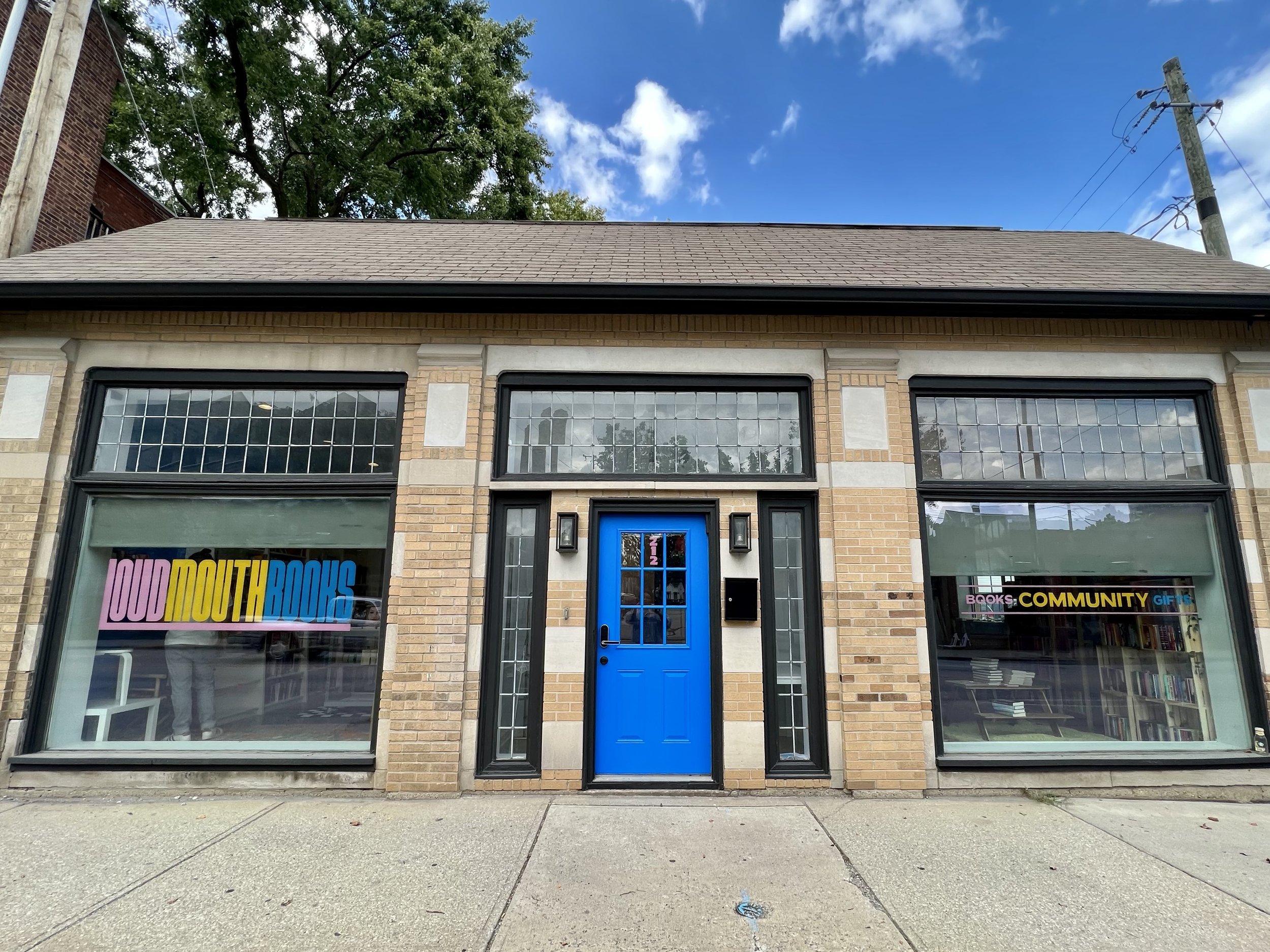 Loudmouth Books, which emphasizes banned books, opened over the weekend--appropriately as Banned Books Week began--at 212 E. 16th St. in Indianapolis, Ind. IndyStar reported that author Leah Johnson "wasn't planning on opening a bookstore this year. Sure, owning her own bookstore was a dream she'd had for a long time as a book lover and writer, but she was too busy writing a book a year and speaking at events all over the country. Then came the 2023 legislative session."
Loudmouth Books, which emphasizes banned books, opened over the weekend--appropriately as Banned Books Week began--at 212 E. 16th St. in Indianapolis, Ind. IndyStar reported that author Leah Johnson "wasn't planning on opening a bookstore this year. Sure, owning her own bookstore was a dream she'd had for a long time as a book lover and writer, but she was too busy writing a book a year and speaking at events all over the country. Then came the 2023 legislative session."




IPC.0204.S3.INDIEPRESSMONTHCONTEST.gif)






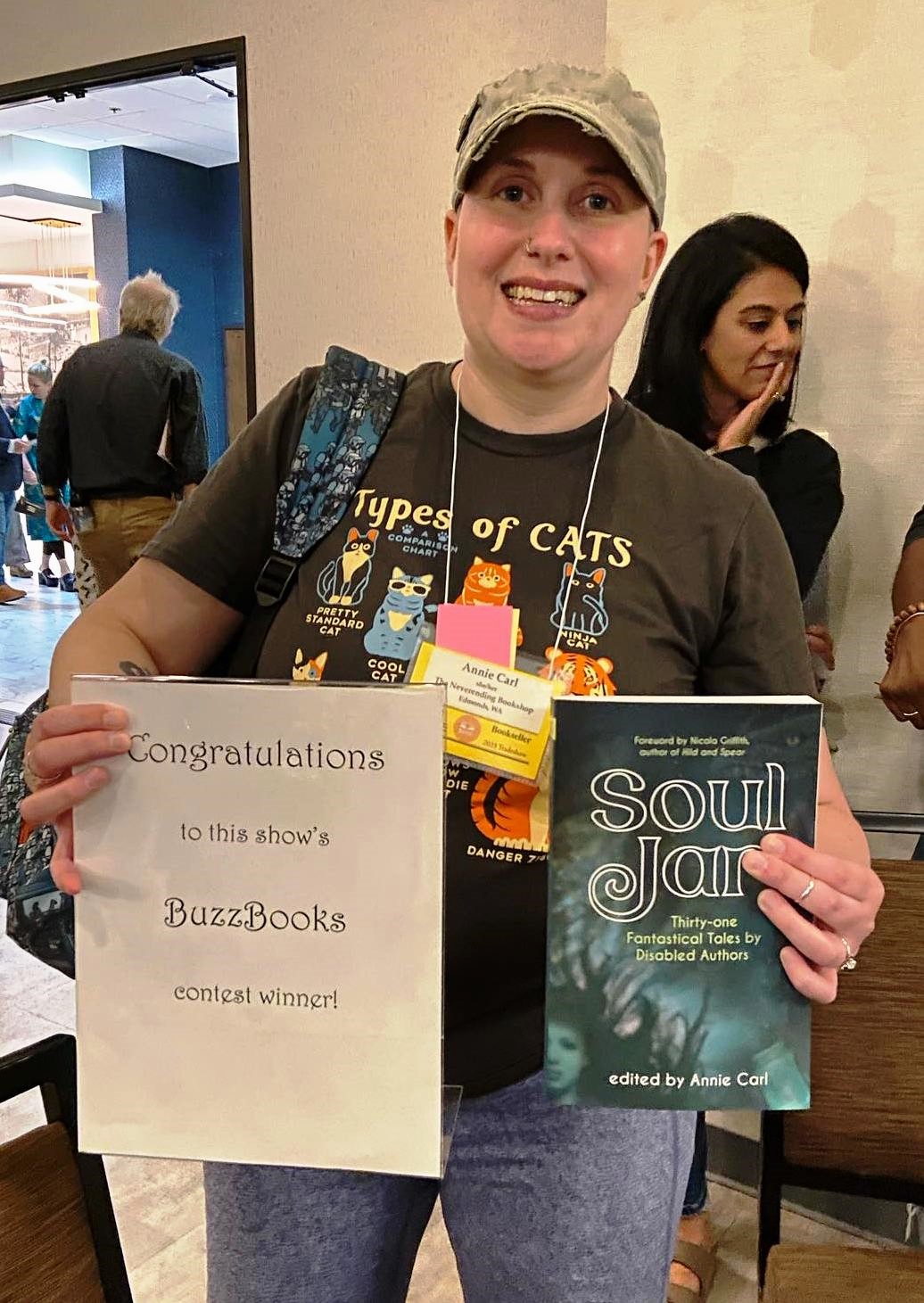


IPC.0211.T4.INDIEPRESSMONTH.gif)
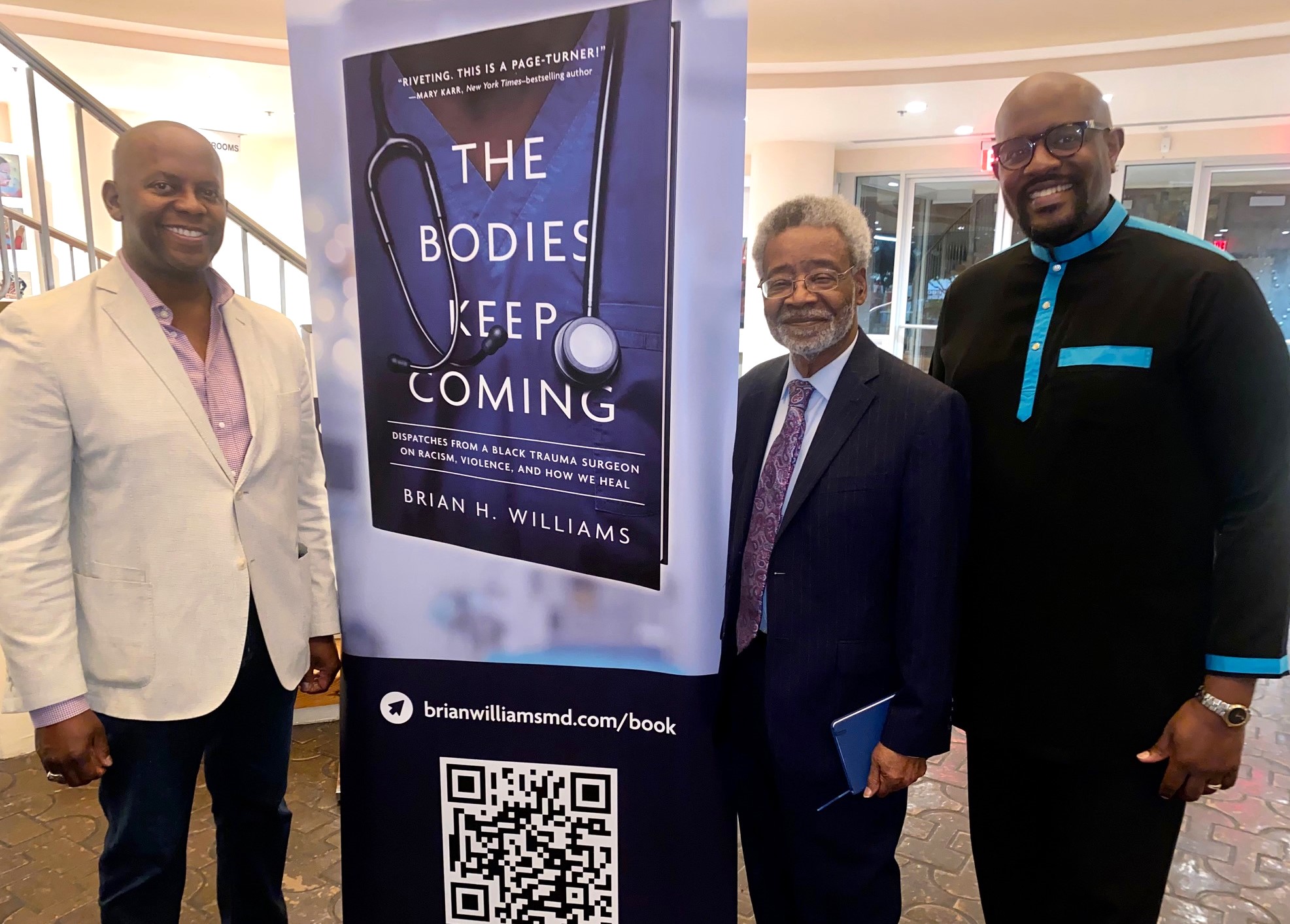 The African American Museum in Dallas, Tex., hosted the launch event for Dr. Brian H. Williams's debut, The Bodies Keep Coming: Dispatches from a Black Trauma Surgeon on Racism, Violence, and How We Heal (Broadleaf Books), featuring Williams in conversation with the Rev. Dr. Michael Waters. Pictured: (l. to r.) Brian H. Williams; Harry Robinson, museum president; and the Rev. Dr. Michael Waters. The venue was packed, with more than 100 attendees;
The African American Museum in Dallas, Tex., hosted the launch event for Dr. Brian H. Williams's debut, The Bodies Keep Coming: Dispatches from a Black Trauma Surgeon on Racism, Violence, and How We Heal (Broadleaf Books), featuring Williams in conversation with the Rev. Dr. Michael Waters. Pictured: (l. to r.) Brian H. Williams; Harry Robinson, museum president; and the Rev. Dr. Michael Waters. The venue was packed, with more than 100 attendees; 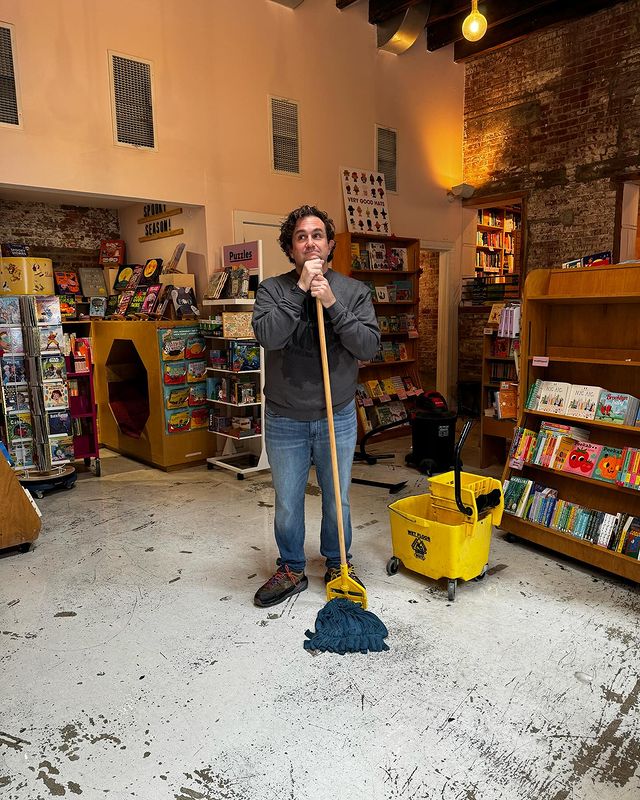 New York City was
New York City was 
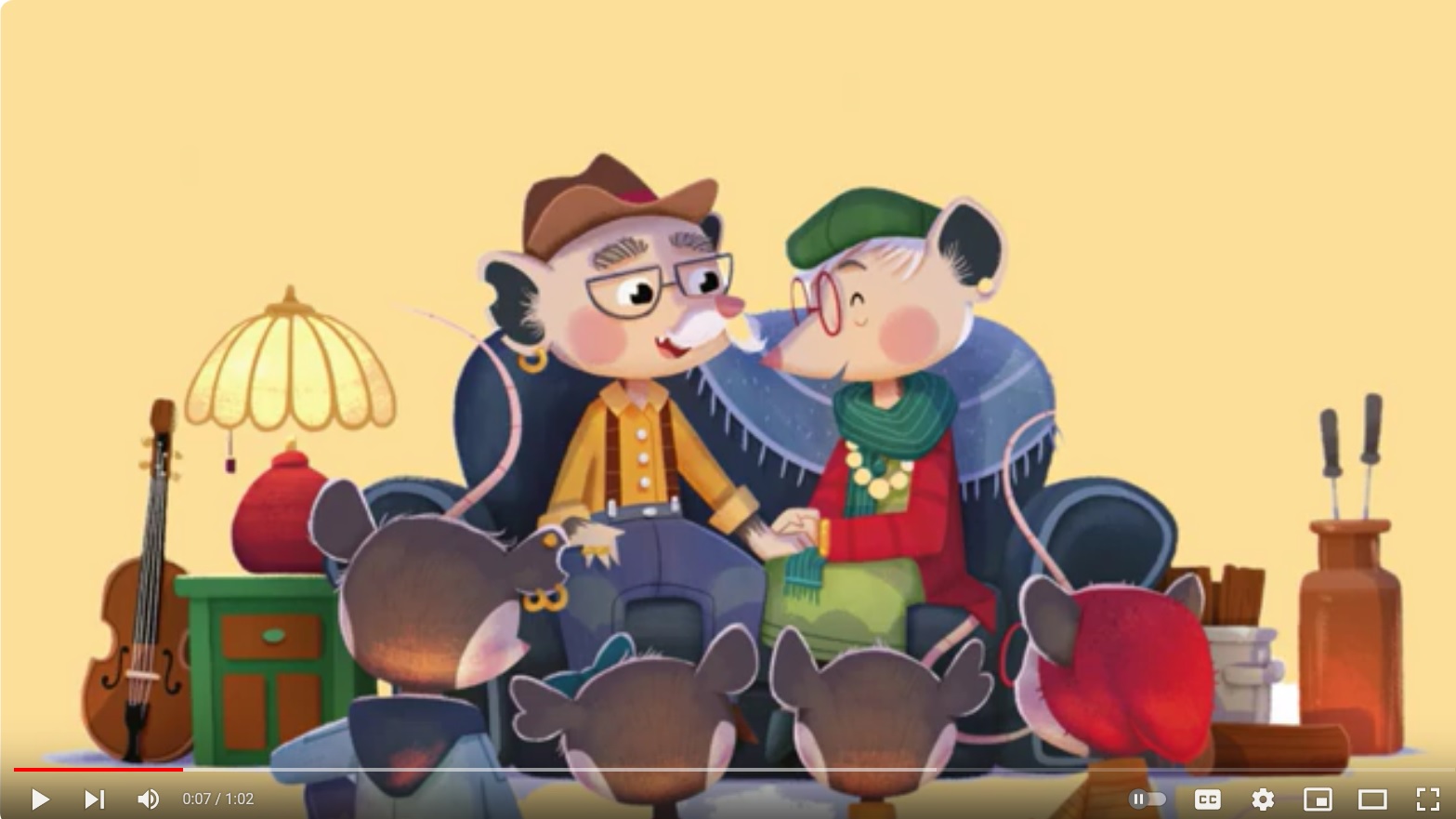 Rockin' the Bayou Down in Louisiana: We're a Possum Family Band
Rockin' the Bayou Down in Louisiana: We're a Possum Family Band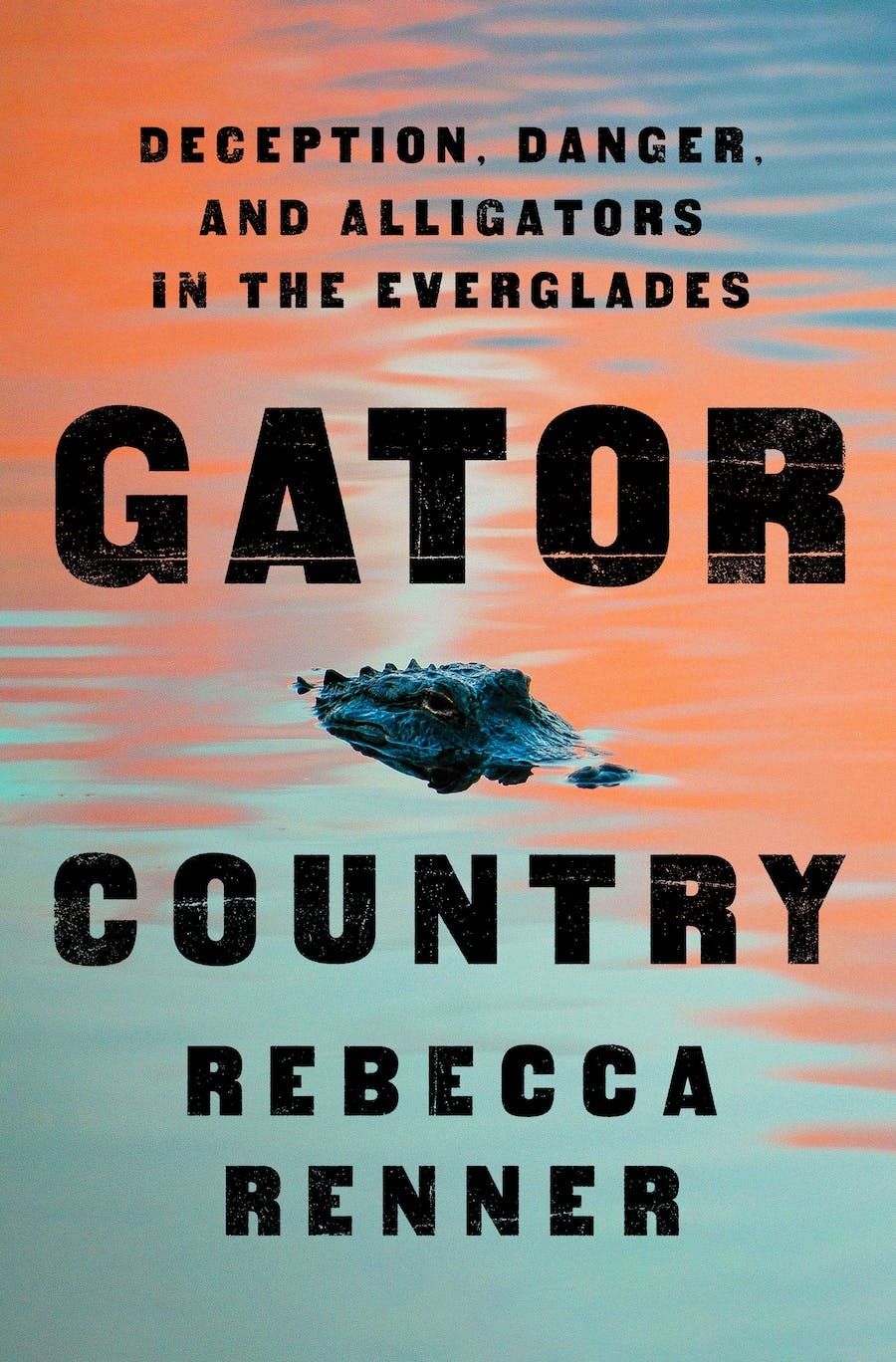 In Gator Country, science and nature journalist Rebecca Renner delivers an astounding story about an alligator-poaching operation in the Florida Everglades. Her adventurous, in-depth study probes the nature of crime and human character, while also mining the far-reaching consequences of what it truly takes to survive--in the wild and in society.
In Gator Country, science and nature journalist Rebecca Renner delivers an astounding story about an alligator-poaching operation in the Florida Everglades. Her adventurous, in-depth study probes the nature of crime and human character, while also mining the far-reaching consequences of what it truly takes to survive--in the wild and in society. 